Consider some of the differences between the
above works of art in terms of when, where and why they
were created:
|
Paleolithic Art
- created over 15,000 years ago, deep in a cave
- an expression of a culture
- intended for a limited audience, private viewing
- magical purposes related to the hunt
|
Keith Haring's Drawings
- created within the last 25 years, in NYC subway
- expression of an individual
- seen by thousands of passers-by on a daily basis
- celebration and/or criticism of urban life?
|
Is
Graffiti Art?
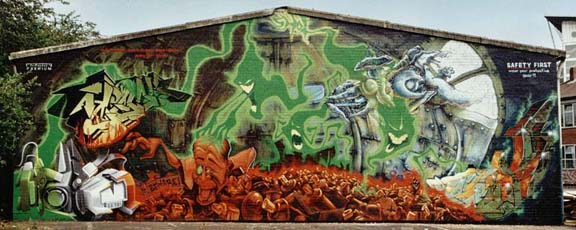
Do ALL Graffiti Expressions
Qualify as Art?
Another Question to Ponder:
Does The Issue of Personal
Property Relate to Qualifying Art?
--------------------------------------------------------------------------------------------
Children's Art: The Beginning
Of An Impulse to Create
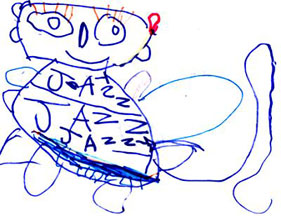
Jazz G., 3yrs, USA
|

Hugo Y., 7 yrs, Canada |
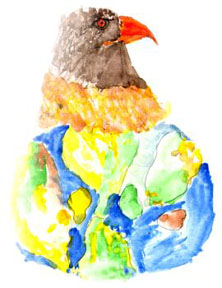
Chrystelle S., 8 yrs, Lebanon |
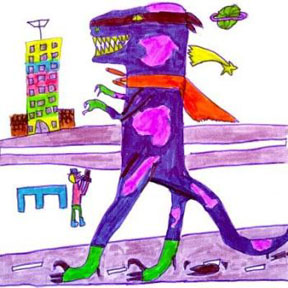
Benjamin M., 10 yrs, France |
See
Virtual Gallery of Children's Art
What is Creativity?
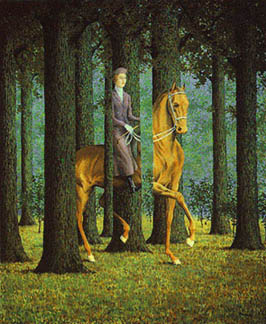
Rene Magritte, The Blank Check 1965 |
|
Traits That Foster Creativity:
Sensitivity
- heightened awareness of what one hears, sees and touches;
responsiveness to feelings of self and others.
Flexibility
- ability to adapt to new situations and to see their possibilities;
willingness to find innovative relationships.
Originality
- uncommon responses to situations and to solving problems.
Playfulness
- a sense of humor and ability to experiment freely.
Productivity
- the ability to generate deas easily and frequently, and to follow
through on those ideas.
Fluency - a
readiness to allow the free flow of ideas.
Analytical skill - a talent for exploring problems, taking them apart, and
finding out how things work.
Organizational skill - ability to put things back together in a coherent order.
|
|
Art as Therapy
|
|
Elizabeth
Layton
Began painting in her 60s, came out of a long
depression, and has been exhibited at the Smithsonian.
|
Anthony Papa
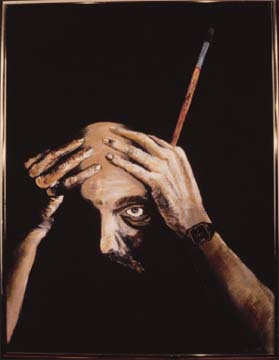
"15 Years to Life" |
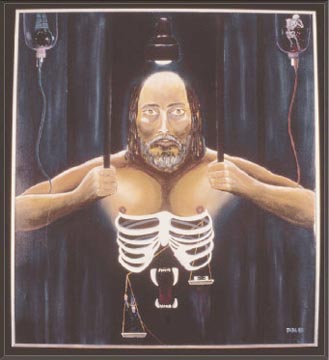
"Nightmare of My Reality" |
Anthony Papa was sentenced to prison for 15
years for a non-violent drug charge.�He earned 3 degrees and learned to
paint. He now works as a paralegal.
Outside the Mainstream: "Outsider Art"
"Outsider Art" is a term used to describe any
art forms which are created outside of the mainstream of the art world
of museums and galleries. Usually, this means that the artist-creator
has little or no knowledge of, access to, or interest in the history of
art or in the art market. It is a fairly broad term, however... and can
encompass art of the insane, of prisoners, or just eccentric persons.
It also has loose associations with the worlds of folk art and naive
art (terms explained below).
Art of the Insane
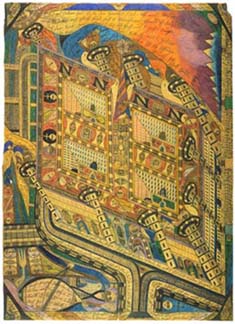
Adolf Wolfli, Swiss patient
|
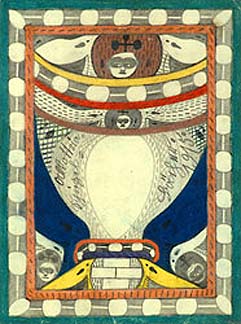
Adolf Wolfli
|
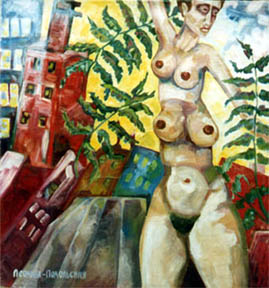
Leonova Podovskaya "Woman Coming to the City" |
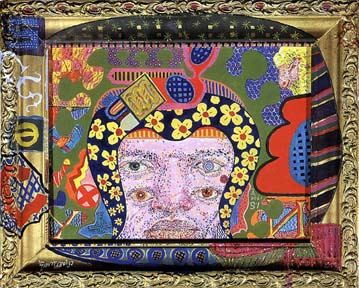
I.Sergeev "Angel" (Aspiration) |
Folk Art/ Naive Art

Greek Tama (charm) |
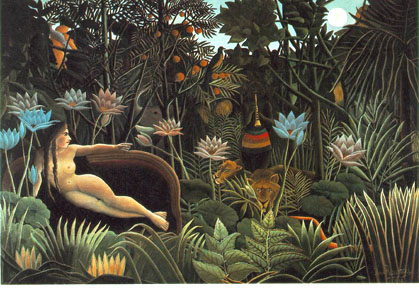
Henri Rousseau, The Dream, 1910 |
Folk Art = Artwork
of a specific regional culture, made by artists without formal art
training. Usually involves traditional craft processes (ceramics,
weaving, quilting,metal-smithing,etc.) and has a utilitarian or
ceremonial function. More Folk Art.
Naive Art =
Artwork created by individuals who have no formal art training and whom
are alienated from a traditional culture. Their works are usually
obsessively detailed, often rich in patterns, and stem from a childlike
impulse to create. More Naive Art.
"Art Environments"

"Beer Can House" in Houston
|
|

Simon Rodia, "Watts Towers", Watts, CA.
|

Edward James, "Las Pozas", Xilitla, Mexico
|
Next: Art and Aesthetics